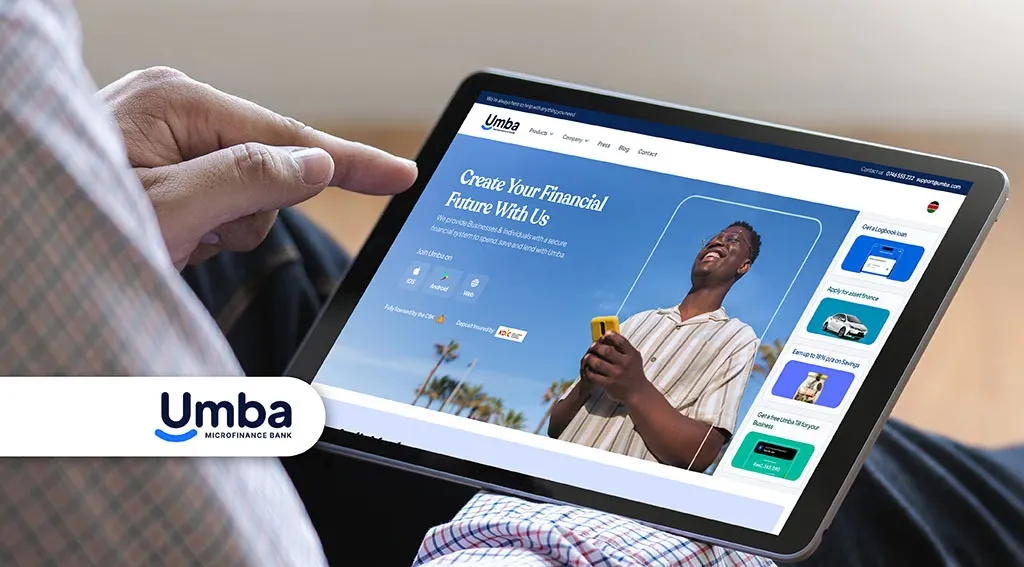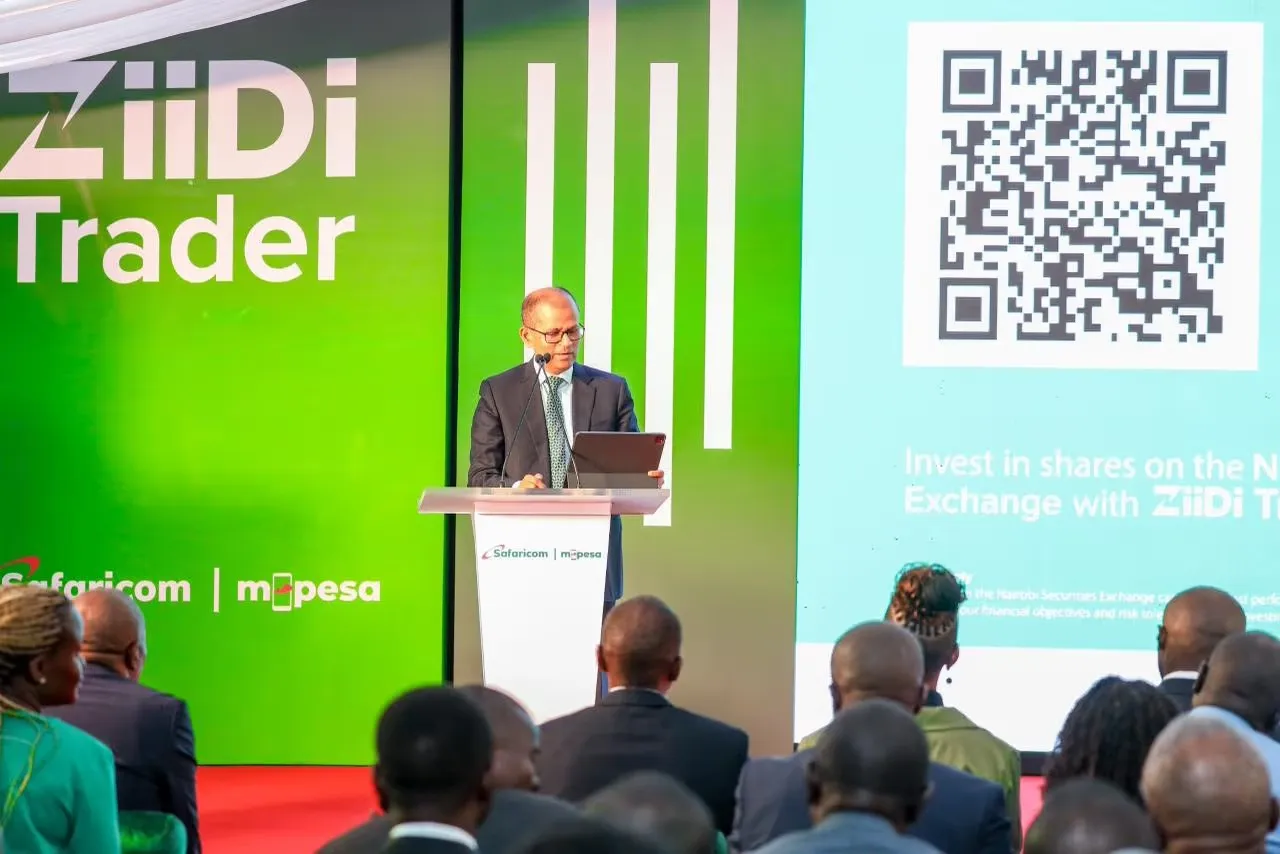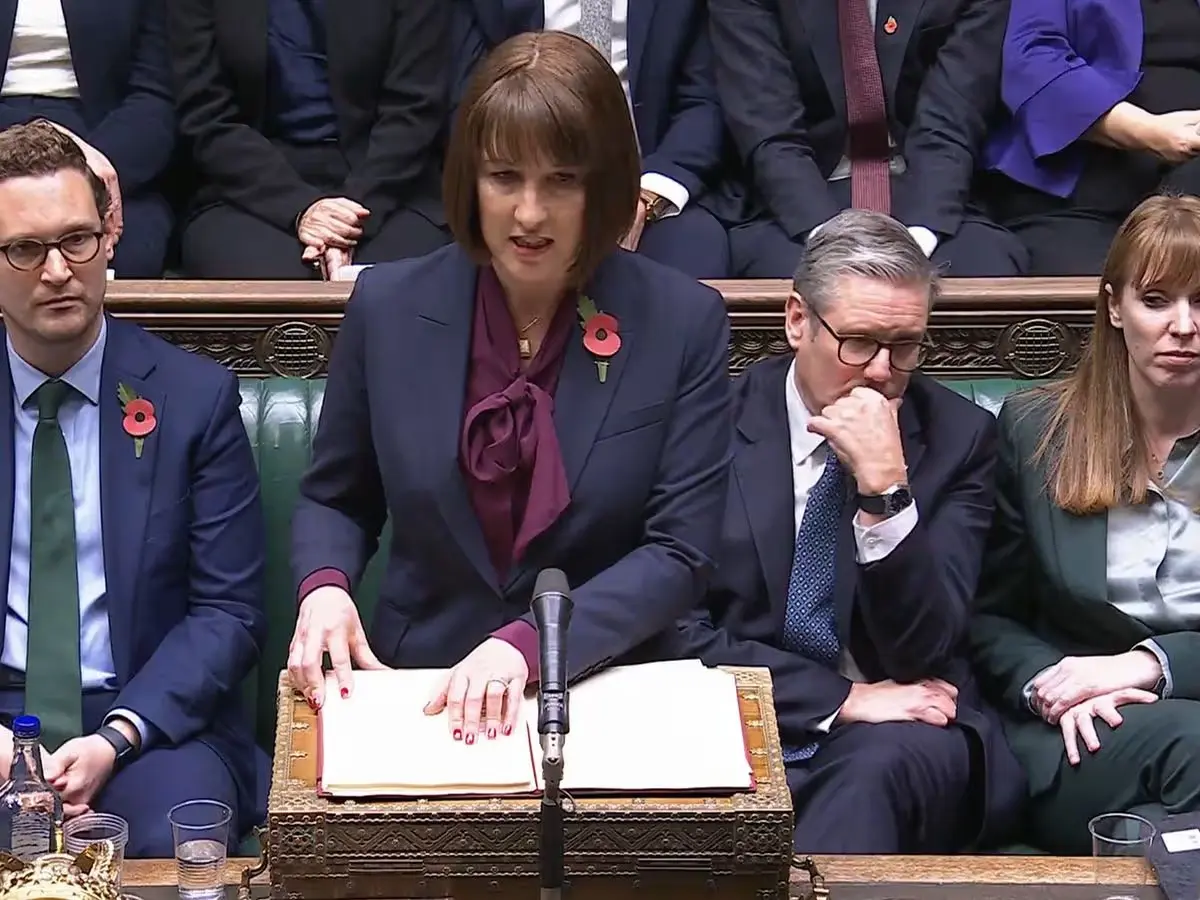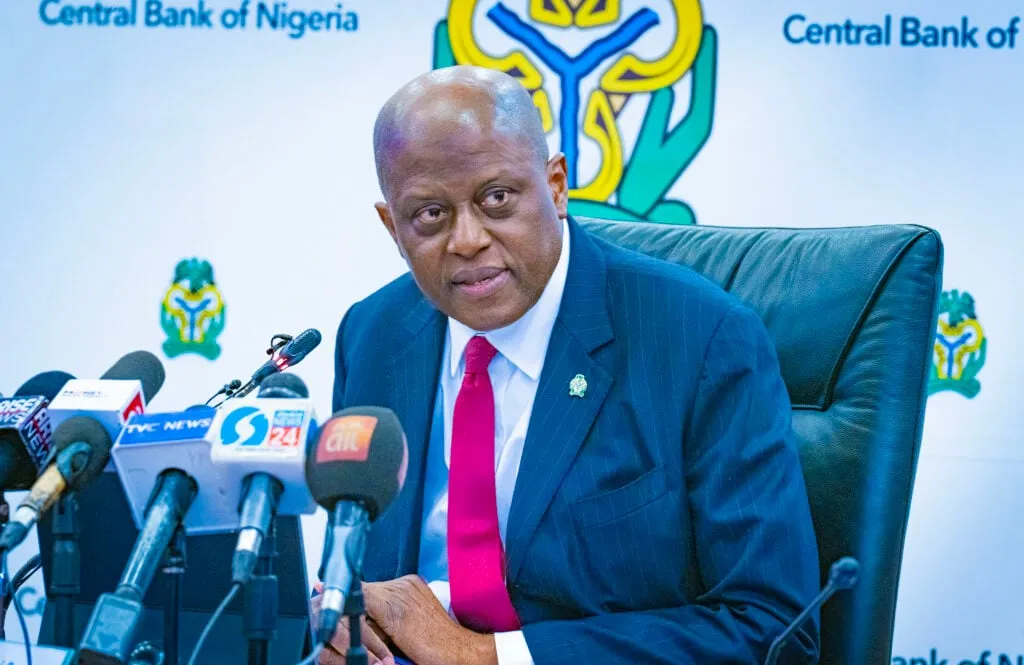Umba, a Nairobi‑headquartered digital bank operating in Kenya and Nigeria, has successfully closed a $5 million debt financing round to accelerate the expansion of its lending portfolio, advance its proprietary credit‑scoring technology, and fuel entry into new East and West African markets within the next 12 months Tech In AfricaFintech News Africa. Led by Star Strong Capital and backed by a consortium of global impact investors and fintech‑focused lenders, the facility underscores growing investor confidence in Africa’s digital banking sector and reflects Umba’s strong underwriting performance and customer‑centric model Techpoint Africa.
From Seed to Scale: Umba’s Journey Since 2018
Founded in September 2018 by Tiernan Kennedy and former Munster rugby player Barry O’Mahony, Umba launched as a credit‑led mobile bank serving under‑served customers in Nigeria before officially entering the Kenyan market in 2021 via the acquisition of a majority stake in Daraja Microfinance Bank The Irish Times. This strategic move granted Umba full microfinance licenses, enabling it to offer a suite of products—current accounts, interest‑bearing savings, fixed deposits, loans, and digital payments—while leveraging Daraja’s regulatory framework. Within its first two years in Kenya, Umba reported a sixfold revenue increase, driven by strong demand for vehicle financing and SME loans, illustrating robust product‑market fit in one of Africa’s most competitive fintech landscapes Techpoint Africa.
Details of the $5 Million Debt Facility
The newly secured $5 million will be deployed predominantly to expand Umba’s lending book, scale its secured and unsecured credit products, and refine its AI‑driven credit scoring engine to deepen risk segmentation and underwriting precision Tech In Africa. While the lead lender, Star Strong Capital, remains publicly acknowledged, other participants include global development finance institutions and impact‑oriented debt funds focused on responsible lending in emerging markets. By choosing a debt facility over additional equity, Umba preserves ownership structure and positions itself for near‑term profitability, a strategy increasingly favored by African fintechs seeking to balance growth with capital efficiency Tech In Africa.
Building on a Solid Funding Track Record
Prior to this debt round, Umba raised $15 million in a Series A equity round in April 2022, led by Costanoa Ventures with participation from Lux Capital, Palm Drive Capital, Banana Capital, and neobanking pioneers including Monzo co‑founder Tom Blomfield FinTech Futures. That injection allowed Umba to launch operations in Egypt and Ghana, as well as enhance its mobile app features—peer‑to‑peer transfers, bill payments, and cashback rewards—establishing the platform’s reputation for transparent, fee‑free banking. Collectively, these prior raises brought Umba’s total capital to approximately $20 million, financing product innovation and regional expansion before turning to debt instruments for its next growth phase FinTech Futures.
Comprehensive Digital Banking for Under‑Served Segments
Umba’s mobile‑first interface offers personal loans, current and savings accounts, bill payments, and international remittances—all accessible via a lightweight app optimized for feature phones and smartphones alike. In Kenya, where M‑PESA dominates mobile payments with over 66 million users, Umba integrates seamlessly with the ecosystem, allowing customers to move funds between their Umba wallet and M‑PESA in seconds The Southern African Times. The bank also partners with 5,000+ agents across Kenya, enabling cash deposits and withdrawals in rural and peri‑urban areas—crucial for financial inclusion where the nearest branch can be hours away Techpoint Africa.
Kenya & Nigeria: Twin Engines of African Digital Finance
Kenya and Nigeria represent Africa’s two largest fintech hubs, together accounting for over 40 percent of the continent’s digital finance activity. In 2024, Kenyan startups attracted $638 million in venture funding—30 percent of Africa’s total—while Nigeria led equity deals with $520 million invested across 103 deals LinkedIn. On the debt side, Kenya dominated with 38 percent of total debt funding and 31 percent of debt deals, underscoring a maturing market for non‑dilutive capital Partech. Umba’s $5 million facility contributes meaningfully to this trend, highlighting Kenya’s appeal to impact lenders and the growing sophistication of local fintech firms.
Mobile Money’s Unstoppable Rise
Across sub‑Saharan Africa, registered mobile money accounts climbed 14 percent to 2.1 billion in 2024, with active 30‑day accounts growing 11 percent to 514 million, driven largely by East and West African markets GSMA. Africa now processes over 82 billion mobile transactions annually, representing 65 percent of global transaction value—approximately $1.1 trillion in 2024—underscoring the critical role of digital finance for everyday commerce and cross‑border remittances MFW4A. This digital payments boom underpins demand for embedded banking services like Umba’s, as consumers and small businesses seek holistic platforms that go beyond simple peer‑to‑peer transfers.
Debt Financing: A Growing Fintech Trend
While equity remains vital for early‑stage fintechs, debt financing has surged as a mechanism to fund loan books without diluting existing shareholders. According to the 2024 Partech Africa Report, African startups secured $1 billion in debt funding—31 percent of total VC and debt financing—a modest 17 percent drop YoY but still a sizable chunk of $3.2 billion raised continent‑wide Ecofin Agency. In particular, fintech accounted for 60 percent of equity funding in 2024, reflecting investor belief in financial services platforms capable of scaling revenue through interest income and fee‑based models Partech. Umba’s choice of debt financing aligns with peers like Carbon, FairMoney, and Branch, which have tapped credit lines to fuel lending growth while preserving governance control.
Leveraging Technology for Responsible Underwriting
At the heart of Umba’s expansion is its data‑driven underwriting engine. By analyzing over 1,000 behavioral and alternative data points—including airtime top‑ups, bill‑pay history, and social network activity—the platform generates real‑time credit scores for customers with limited or no formal credit records Techpoint Africa. Recent integration of machine learning models has improved default predictions by 25 percent, enabling Umba to underwrite loans up to $5,000 with interest rates competitive to local microfinance institutions. The new debt facility will fund further R&D in AI explainability and fraud detection, bolstering both performance and regulatory compliance as the bank enters new jurisdictions.
Humanizing Finance: Real‑World Impact
Behind the metrics lie personal stories:
- Grace, a Nairobi clinic owner, extended operating hours after securing a $3,000 working‑capital loan from Umba, enabling her to serve twice as many patients per day.
- Otieno, a mechanic in Kisumu, financed a brake‑lathe machine via a $2,500 Umba vehicle loan, increasing workshop revenue by 40 percent.
- Mary, a street‑vendor in Lagos, opened a fixed‑deposit account through Umba’s Nigerian arm, earning 12 percent annual returns on her savings—double the rate of traditional banks Techpoint Africa.
These tangible benefits illustrate how digital banking solutions can catalyze microentrepreneurship and uplift household incomes across Africa.
Regulatory & Competitive Landscape
Regulatory support for digital banks has strengthened: Kenya’s Central Bank recently issued guidelines for non‑bank lenders, while Nigeria’s CBN expanded mobile‑money interoperability and agent‑banking rules GSMA Intelligence. However, competition remains fierce. Legacy banks are launching digital subsidiaries, and neobanks like Chipper Cash and Opay are diversifying into credit. Currency volatility and macroeconomic headwinds—such as rising interest rates and fluctuating FX—pose additional risks. To mitigate these, Umba’s treasury team hedges foreign‑currency debt, and its ALM framework maintains liquidity buffers above regulatory minima.
Looking Ahead: Sustainable Growth & Profitability
With the $5 million debt facility in place, Umba targets 30 percent year‑on‑year loan portfolio growth, aiming to serve 1 million active customers by end‑2026. The bank projects break‑even profitability in Kenya by Q2 2026, supported by interest income and zero‑fee deposit balances. Geographic expansion plans include Ghana, Senegal, and Uganda, leveraging local partnerships and agent networks. Umba’s leadership believes that disciplined debt funding—coupled with robust technology and human‑centered design—will position the platform as a cornerstone of Africa’s digital finance ecosystem.
Ready to take your career to the next level? Join our dynamic courses: ACCA, HESI A2, ATI TEAS 7 , HESI EXIT , NCLEX – RN and NCLEX – PN, Financial Literacy!🌟 Dive into a world of opportunities and empower yourself for success. Explore more at Serrari Ed and start your exciting journey today! ✨
photo source: Google
By: Montel Kamau
Serrari Financial Analyst
22nd April, 2025
Article, Financial and News Disclaimer
The Value of a Financial Advisor
While this article offers valuable insights, it is essential to recognize that personal finance can be highly complex and unique to each individual. A financial advisor provides professional expertise and personalized guidance to help you make well-informed decisions tailored to your specific circumstances and goals.
Beyond offering knowledge, a financial advisor serves as a trusted partner to help you stay disciplined, avoid common pitfalls, and remain focused on your long-term objectives. Their perspective and experience can complement your own efforts, enhancing your financial well-being and ensuring a more confident approach to managing your finances.
Disclaimer: This article is for informational purposes only and does not constitute financial advice. Readers are encouraged to consult a licensed financial advisor to obtain guidance specific to their financial situation.
Article and News Disclaimer
The information provided on www.serrarigroup.com is for general informational purposes only. While we strive to keep the information up to date and accurate, we make no representations or warranties of any kind, express or implied, about the completeness, accuracy, reliability, suitability, or availability with respect to the website or the information, products, services, or related graphics contained on the website for any purpose. Any reliance you place on such information is therefore strictly at your own risk.
www.serrarigroup.com is not responsible for any errors or omissions, or for the results obtained from the use of this information. All information on the website is provided on an as-is basis, with no guarantee of completeness, accuracy, timeliness, or of the results obtained from the use of this information, and without warranty of any kind, express or implied, including but not limited to warranties of performance, merchantability, and fitness for a particular purpose.
In no event will www.serrarigroup.com be liable to you or anyone else for any decision made or action taken in reliance on the information provided on the website or for any consequential, special, or similar damages, even if advised of the possibility of such damages.
The articles, news, and information presented on www.serrarigroup.com reflect the opinions of the respective authors and contributors and do not necessarily represent the views of the website or its management. Any views or opinions expressed are solely those of the individual authors and do not represent the website's views or opinions as a whole.
The content on www.serrarigroup.com may include links to external websites, which are provided for convenience and informational purposes only. We have no control over the nature, content, and availability of those sites. The inclusion of any links does not necessarily imply a recommendation or endorsement of the views expressed within them.
Every effort is made to keep the website up and running smoothly. However, www.serrarigroup.com takes no responsibility for, and will not be liable for, the website being temporarily unavailable due to technical issues beyond our control.
Please note that laws, regulations, and information can change rapidly, and we advise you to conduct further research and seek professional advice when necessary.
By using www.serrarigroup.com, you agree to this disclaimer and its terms. If you do not agree with this disclaimer, please do not use the website.
www.serrarigroup.com, reserves the right to update, modify, or remove any part of this disclaimer without prior notice. It is your responsibility to review this disclaimer periodically for changes.
Serrari Group 2025
















